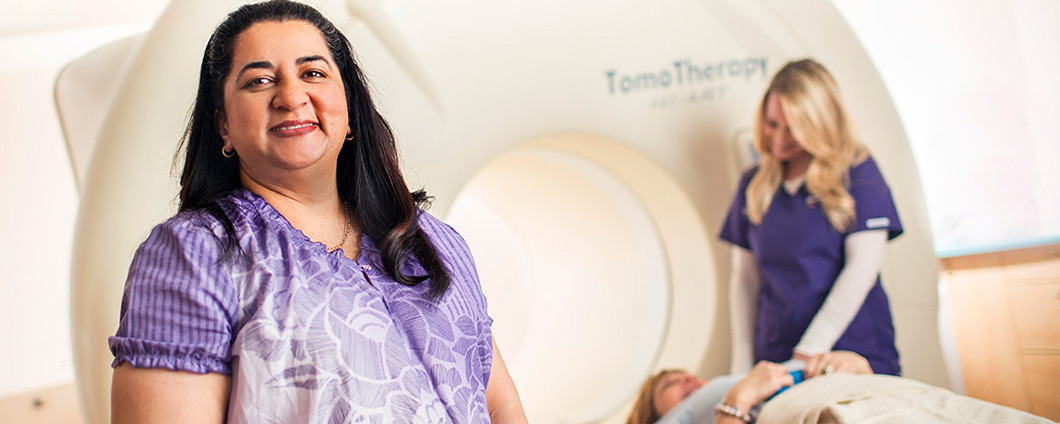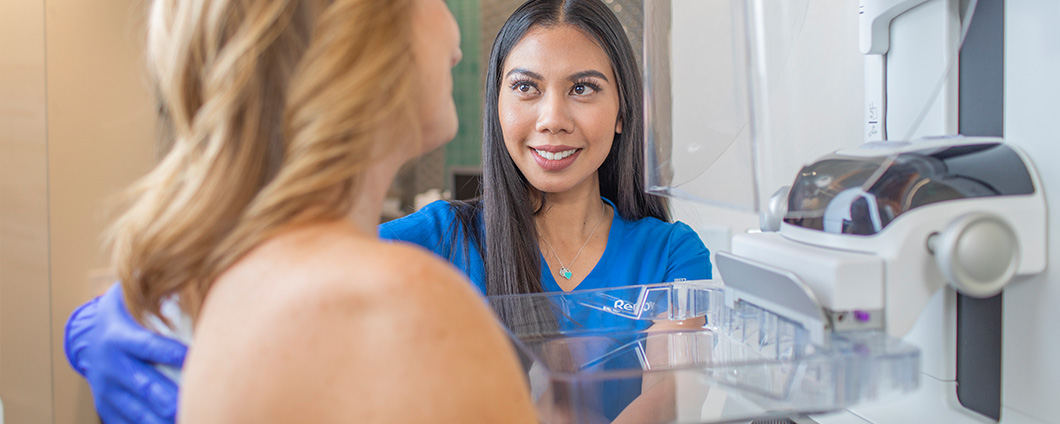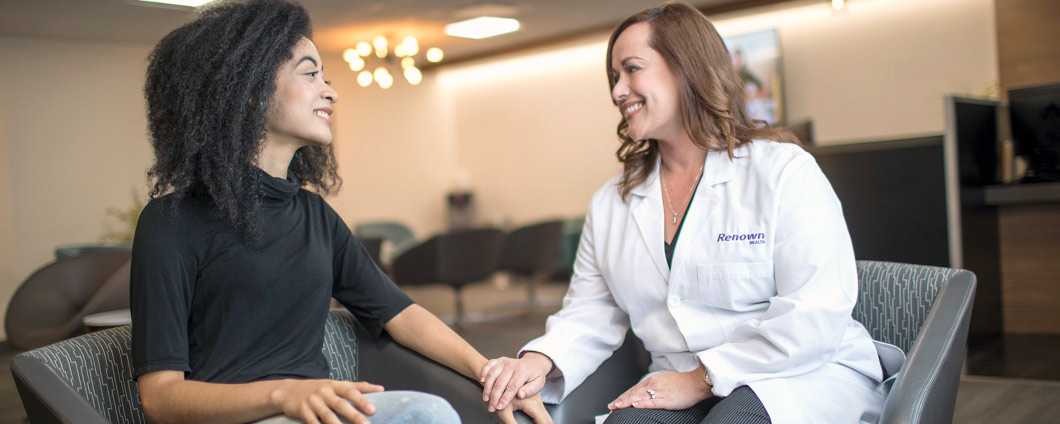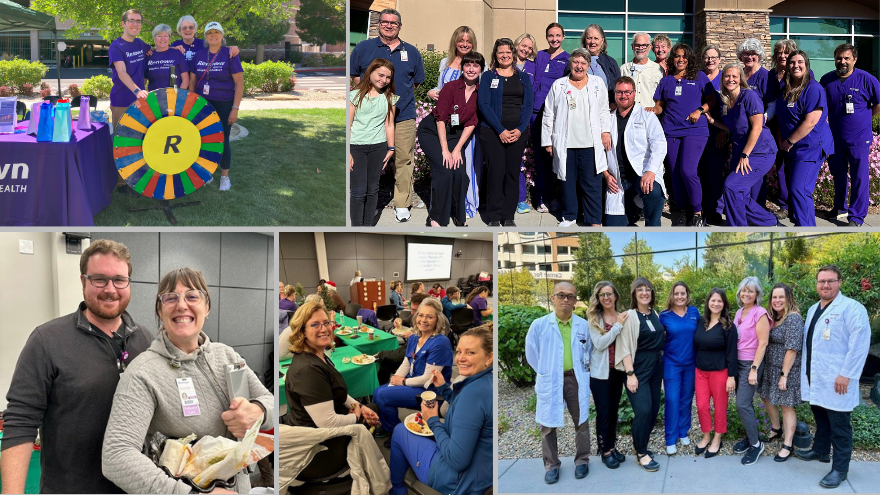Search
Results for 'insurance'
Clear-
Ultrasound Technologist-Inpatient
Per Diem - Non Benefited200252 Imaging UltrasoundVaries -
Lab Program Coordinator
Full Time - Eligible for Benefits200286 Reference LaboratoryDay -
Practice Site Leader
Full Time - Eligible for Benefits530293 Medical Group RobbDay -
Cardiac Ultrasound Technologist-Inpatient
Per Diem - Non Benefited200268 EchocardiologyVaries -
Colorectal Cancer
Colorectal Cancer Screening & Prevention For more info, give us a call. 775-982-4000 Colorectal cancer is the second-deadliest cancer in the United States, partly because it often goes undiagnosed. Polyps can develop in the colon or rectum and become malignant without presenting any symptoms. Therefore, knowing and addressing your risk factors and undergoing the recommended screenings is crucial. Colorectal cancer affects both men and women. Even if you have no personal or family history of colon cancer, ask your doctor about colorectal risk factors and when to start screening. With regular screening, colorectal cancer is easily detectable and treatable.
-
Breast Cancer Screening
Renown Women's Health recommends the following breast exam guidelines: Age 18-39: Consult your primary care provider for a Formal Risk Assessment and start breast exams at age 25. Age 40+: Annual mammograms. Family History: Begin screening 10 years before your family member's diagnosis age. For example, start at age 35 if a family member was diagnosed at 45. Self-awareness: Be familiar with the look and feel of your breasts and report any changes to your care provider. Age 75+: Annual mammograms if life expectancy exceeds five to seven years.
-
Renown Pharmacy
Renown Pharmacy Our Pringle location is now open 24/7 for your convenience! Renown Pharmacy is an integral part of your healthcare team and a premier destination to receive your medications and vaccines. We specialize in hard-to-find pharmaceuticals at lower costs not typically stocked at other retail locations, such as certain compound medications.
-
Current Clinical Trials
Through the Renown Health-UNR Medical School affiliation, the first academic and clinical research enterprise was created in Nevada, making Renown a destination of choice for high quality cutting edge research partnerships. The Renown Research Office supports dozens of clinical trials in a wide variety of specialties, and continues to expand our partnerships across the organization. In addition, our partnership with the National Cancer Institute (NCI), the Nevada Cancer Research Foundation, and the Children’s Oncology Group (COG) provides Renown with access to dozens of open oncology clinical trials, including ground-breaking treatments for many childhood cancers, studies to better understand these diseases, and trials focused around supportive care and survivorship.
-
Department Spotlight: Hospice & Palliative Care
In the book of life, everyone eventually reaches the final chapter. End-of-life isn’t often something a patient or loved one wants to think about. The end of someone’s life isn’t a final option – it's a privilege. At Renown Health, we have a compassionate team prepared to approach this privilege with kindness and care. The Hospice & Palliative Care department at Renown is the best of the best. Their efforts go far beyond simply addressing physical pain; they also bring emotional and spiritual solace to patients and family members navigating the complexities of serious illness and end-of-life. This team provides crucial guidance and expert knowledge, comfort and care when it is most needed. Bringing Dignity to the Final Days Contrary to popular belief, hospice and palliative care is not a “last resort” option for families. In fact, it’s quite the opposite. These caring professionals work hard to ensure a patient’s final days are free of pain and full of peace, rather than focused on the end. This type of care isn’t a death sentence – it's a living gift. Each patient is involved in his or her own end-of-life process. They have a huge role in deciding on their own and with their family members how they want to live out their remaining days. “Every team member’s daily work focuses on how to facilitate a good death for each patient,” said Tanya Prosch, Hospice Supervisor. “Ultimately, it is up to each patient’s family to be involved in this process. Every day, there is a lot of communication among team members as we prioritize the needs of our patients. As patients decline and their symptoms change, we continuously assess what topics we will discuss. This creates a beautiful back-and-forth dynamic among the team, patients and families.” “Together, we come as a team to provide what they need, ensuring individualized care for each patient and family based on their safety and specific needs,” added Rachel Schneider, Transitional Care Specialist. “Our care plans are not cookie-cutter; they are tailored to fit each unique situation.” The hospice team provides comfort and support to those in the final stages of a terminal illness. Hospice is focused on one main goal, which is enhancing quality of life for patients and their families. “In general, hospice staff conduct home visits to see our hospice patients,” said Amy Nieminen, Manager of Home Health & Hospice. “We have an interdisciplinary team that includes nurses, aides, chaplains, social workers and volunteers. Together, we address both the physical and emotional, spiritual and social needs of our patients and their families at the end of life, ensuring they have a meaningful and peaceful experience. We do a lot of work with families and loved ones, providing follow-up calls and support for the patient’s caregivers after their passing. Our support extends for up to a year, with grief specialists available to help families through their loss. Additionally, we have rotating on-call nurses every night and weekend, so patients are never left without care.” While palliative care shares similar duties to hospice care, it differs slightly. Palliative care can be involved at any stage of a serious illness, even during treatments. “During in-home palliative care, we work with patients who may be physically ready for hospice but who are not yet psychologically, emotionally or spiritually prepared to make that transition,” said April Lennon, APRN for In-Home Palliative Care. “They may still be exploring treatment options and working with their specialists. We provide a lot of support, helping them understand the consequences and benefits of various treatments. Additionally, we focus on symptom management for patients experiencing significant pain or nausea, assisting them in managing these symptoms effectively.” On both sides of this department, the team has the opportunity to be especially involved in their patients’ lives and in the lives of their families. Giving loved ones more time with their relative facing end-of-life is a duty that these team members take seriously. “My job is to educate families about what’s coming next and what is happening now, as there is a lot that occurs during the death process,” said Katie Adams, Hospice Nurse Case Manager. “Families will never regret the time and effort spent during this process. We have only one chance to get this right. This is not just a random hospitalization that people will forget; it is a significant moment that everyone around the patient will remember.” “Being able to connect more deeply with patients’ and families’ stories and their narratives about life is essential, as it provides a broader understanding beyond just the medical picture of what is happening,” added Libby Krayk, APRN for Hospice. “We explore their expanded value and belief systems to assist with decision-making, helping them make choices together. When patients are no longer distracted by pain or nausea, they can focus on their long-term desires and goals and spend more time with their families." “Crisis intervention, social work, education, family conferences, and placement issues are all part of what we do, and it’s quite exciting,” added Donald Kamka, Social Work Care Coordinator. “You become fully invested in the lives of those you help, which is what makes this job so rewarding. This is a remarkable time in their journey, and it’s evident that everyone involved has a vested interest in it." Naturally, many questions, worries and fears arise during this time in a patient’s life. The Hospice & Palliative Care team members are expert communicators and know exactly how to relieve some of those anxieties, prompting a more peaceful end-of-life. According to this team, it’s all about transparency and compassion. “Our role involves helping patients navigate the healthcare system as they face death,” said April Lennon. “Home visits can range from one hour to three hours, depending on the needs of the patient and their family. We engage with entire families, including those who are out of town, coordinating care and working with many providers in the area. Our hope and goal for every patient is to ensure they understand what they are doing and why they are doing it, empowering them to make their own choices.” “We often find ourselves addressing the most difficult information, which can sometimes be seen as the ‘elephant in the room’ that people tend to avoid,” added Libby Krayk. “I ask patients for their permission regarding what they want to know and who they would like involved in the conversation. This approach can help alleviate some of the challenges and stress they may be experiencing. Being honest and discussing matters in a way that they can understand is essential. I take the time to sit down with my patients and connect with them on a human level, rather than just a medical level.” As a not-for-profit health system, volunteers are at the core of our mission delivery. They graciously dedicate hours out of their week to be a friendly source of help for patients. Renown’s Hospice Volunteers exude this level of kindness and more. Our employed team members attribute their volunteers as a major source of success for Renown’s hospice program. “I believe that being a volunteer provides a role that patients perceive as non-threatening,” said Linda Derry, Hospice Volunteer. “As volunteers, patients feel more comfortable talking to us and sharing things. This dynamic allows them the freedom to express not only how they are feeling but also their fears and any other concerns they may have. It is in these moments that we can truly connect with them, as we are volunteering out of a genuine desire to sit and visit with the patients. “When I see a patient, the focus depends on their specific needs,” added Luanne Geissler, Hospice Volunteer. “I often give family members some time to themselves to do whatever they need to do while I visit with the patient. Many of them are very talkative and eager to share their stories. For instance, one patient told me how to make a baked potato while out in the wilderness, which has become one of my favorite stories. Another patient shared her experiences about coming to America from Asia, discussing her church, her religion and her passion for baking. She would even bring bread to her doctor.” “I have one patient whose main desire is to play chess; he has been playing for over 80 years and is still able to play very well,” added Hervey Ibarra, Hospice Volunteer. “When I visit another patient at his home, we engage in conversations about a variety of topics. Additionally, some patients ask me questions about the military and law enforcement. Whatever they want to do and discuss, that is what I focus on during our time together.” Regardless of whether they are a provider, supporting team member or a volunteer, every person on the Hospice & Palliative Care team shares a primary focus: helping patients live their remaining days, no matter how long that may be, with dignity and comfort, surrounded by their loved ones.
Read More About Department Spotlight: Hospice & Palliative Care





